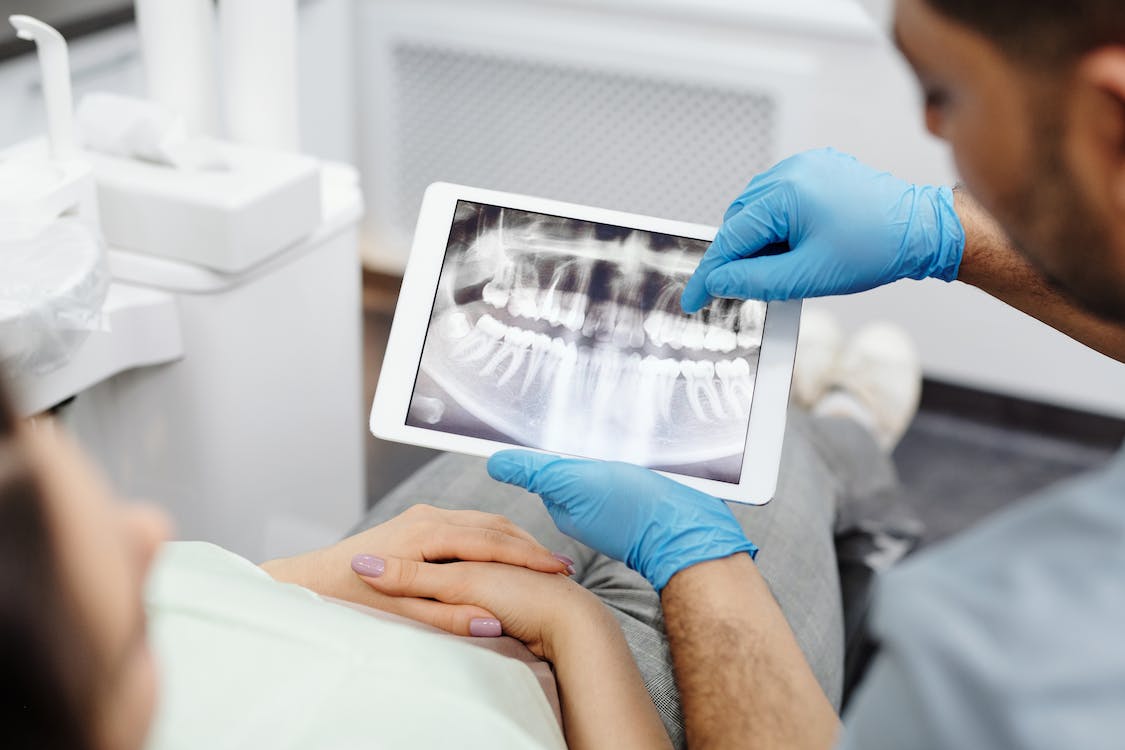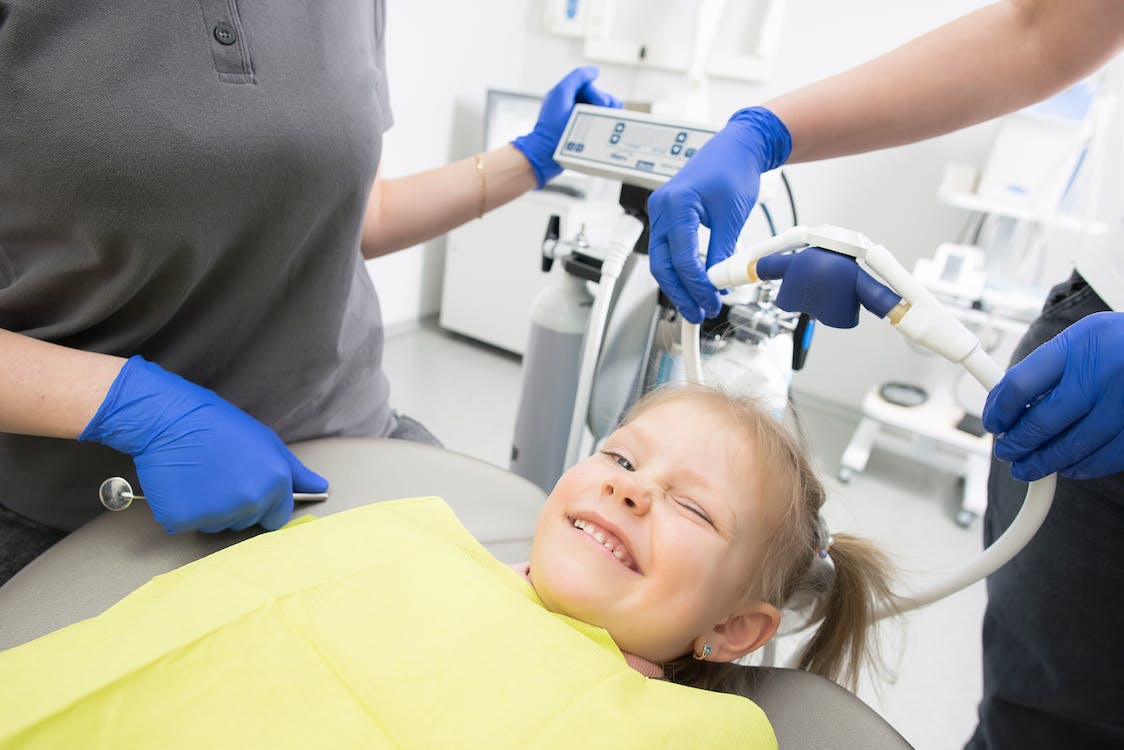Frequently Asked Questions

FREQUENTLY ASKED QUESTIONS
Dental Care and Oral Health
How often should I have my teeth cleaned?
We like to say “prevention is better than the cure” (and a lot cheaper). A professional clean is a great preventative measure of many oral health problems, therefore, you should get into the habit of routinely booking in.
We recommend that you visit JT Dental at least every 6 months or 2 times a year.
Some patients may need a more regular check if they have a high risk of decay or gum disease, The dentist will advise if this is the case for you.
Are you overdue?? Click here to book in for a checkup and clean with one of our amazing clinicians.
We recommend that you visit JT Dental at least every 6 months or 2 times a year.
Some patients may need a more regular check if they have a high risk of decay or gum disease, The dentist will advise if this is the case for you.
Are you overdue?? Click here to book in for a checkup and clean with one of our amazing clinicians.
How do I practice good oral hygiene at home?
Using a soft or extra soft tooth brush and a fluoridated toothpaste, brush your teeth and gums in small circular motions.
Firstly, You should do this in the morning and in the evening for approximately 2-3 minutes.
Secondly, after brushing, use some dental floss and clean in-between all of your teeth.
Lastly, after this… nothing, because you don’t need to rinse 🙂
Aside from this, you should:
– Try to eat a balanced diet of fruits and vegetable
– Keep snacking to a limit
– If you do snack, keep snacking to one time or one session- rather than constantly grazing throughout the day.
– Drink plenty of water
– Try to avoid sipping on sugary drinks such as: juice, soft drinks, and alcohol
– Avoid tobacco and vaping
– Don’t use illegal substances
Firstly, You should do this in the morning and in the evening for approximately 2-3 minutes.
Secondly, after brushing, use some dental floss and clean in-between all of your teeth.
Lastly, after this… nothing, because you don’t need to rinse 🙂
Aside from this, you should:
– Try to eat a balanced diet of fruits and vegetable
– Keep snacking to a limit
– If you do snack, keep snacking to one time or one session- rather than constantly grazing throughout the day.
– Drink plenty of water
– Try to avoid sipping on sugary drinks such as: juice, soft drinks, and alcohol
– Avoid tobacco and vaping
– Don’t use illegal substances
Should I rinse my mouth after I have brushed my teeth?
NO! DO NOT RINSE AFTER BRUSHING. Certainly do not copy what you see in the movies.
Firstly, rinsing your mouth after you brush is not required!
Instead, you should spit out the excess toothpaste and avoid rinsing.
This will make sure that you leave a protective layer of fluoride on your teeth.
The same principle applies to mouth wash. Mouthwash is best to be used to freshen your breath.
Firstly, rinsing your mouth after you brush is not required!
Instead, you should spit out the excess toothpaste and avoid rinsing.
This will make sure that you leave a protective layer of fluoride on your teeth.
The same principle applies to mouth wash. Mouthwash is best to be used to freshen your breath.
Do I really need to floss?
Yes!!!! Flossing is very important because your toothbrush cannot reach all the surfaces of your teeth on its own.
Not flossing would be like having a shower and only washing your face. You need to clean your body as well!
Not flossing would be like having a shower and only washing your face. You need to clean your body as well!
Are dental X-rays safe?
Yes. You are exposed to a very small amount of radiotherapy when having a dental x-Ray taken.
Advancements in technology has made a lot of our machinery safer. The newer style x-rays are digital machines.
They have a radiation beam that is focused only on the area that is being X-rayed, therefore, there is no scatter of radiation beyond the mouth.
Studies suggest that radiation is further reduced by another 90% when switching to digital.
Government regulations require that X-ray machines are tested and calibrated regularly for safety and accuracy.
We only use digital x-rays in our clinic.
Advancements in technology has made a lot of our machinery safer. The newer style x-rays are digital machines.
They have a radiation beam that is focused only on the area that is being X-rayed, therefore, there is no scatter of radiation beyond the mouth.
Studies suggest that radiation is further reduced by another 90% when switching to digital.
Government regulations require that X-ray machines are tested and calibrated regularly for safety and accuracy.
We only use digital x-rays in our clinic.
Why do I need dental x-rays?
Decay can be present in areas of the mouth that the dentist can not see with the naked eye.
Unless you have cavities in your teeth with large obvious holes, things might be missed.
Taking X-rays will help the dentist to diagnose and therefore treat any changes in your mouth.
Early detection is the key to avoiding painful toothaches and complications.
Unless you have cavities in your teeth with large obvious holes, things might be missed.
Taking X-rays will help the dentist to diagnose and therefore treat any changes in your mouth.
Early detection is the key to avoiding painful toothaches and complications.
I’m pregnant. Does that mean I can’t go to the dentist?
If you are pregnant, we highly suggest regular dental visits for the wellbeing of you and your unborn child.
It is safe to receive routine dental treatment during pregnancy, however, some procedures or medications should be avoided in the 1st trimester.
When you are planning or if you are currently trying to fall pregnant, it is important to inform your dentist at the time of your dental visit – to ensure x-rays are not taken.
In some circumstances, an x-ray may be required to assist with identifying and achieving suitable pain relief.
During pregnancy, changes in hormone levels can cause an increase in bacteria. This can result in gum disease which can become quite severe if left untreated.
You should continue to have regular check up and clean appointments during your pregnancy.
It is safe to receive routine dental treatment during pregnancy, however, some procedures or medications should be avoided in the 1st trimester.
When you are planning or if you are currently trying to fall pregnant, it is important to inform your dentist at the time of your dental visit – to ensure x-rays are not taken.
In some circumstances, an x-ray may be required to assist with identifying and achieving suitable pain relief.
During pregnancy, changes in hormone levels can cause an increase in bacteria. This can result in gum disease which can become quite severe if left untreated.
You should continue to have regular check up and clean appointments during your pregnancy.
I am terrified of the dentist but I know I need treatment. What can I do?
You’re not alone!
About 10% of Australians avoid going to the dentist because of fear or anxiety, and in doing so, they put their oral and general health at risk.
By understanding your fears, your dentist can determine a strategy that can calm and comfort you enough so that vital dental treatment can take place successfully.
There are a number of strategies available to help patients overcome dental anxiety:
– medication
– dental sedation
– relaxation techniques
– support groups.
About 10% of Australians avoid going to the dentist because of fear or anxiety, and in doing so, they put their oral and general health at risk.
By understanding your fears, your dentist can determine a strategy that can calm and comfort you enough so that vital dental treatment can take place successfully.
There are a number of strategies available to help patients overcome dental anxiety:
– medication
– dental sedation
– relaxation techniques
– support groups.

About JT Dental and our Clinics
Does JT Dental accept New Patients?
We welcome and accept all patients, new and old.
Take advantage of our special introductory package for new patients.
For $197, this package includes a comprehensive oral examination, a thorough scale and clean of all your teeth, two bite-wing X-rays, a polish and a fluoride treatment.
To thank you for joining our clinic, you will also receive a new hygiene pack which includes a brand new soft bristled toothbrush, floss, a floss stick and a toothpaste tube.
These are great for travel but you can use them at any time.
Take advantage of our special introductory package for new patients.
For $197, this package includes a comprehensive oral examination, a thorough scale and clean of all your teeth, two bite-wing X-rays, a polish and a fluoride treatment.
To thank you for joining our clinic, you will also receive a new hygiene pack which includes a brand new soft bristled toothbrush, floss, a floss stick and a toothpaste tube.
These are great for travel but you can use them at any time.
I don’t speak English very well, what do i do?
We are multi-cultural at JT Dental, and we have staff members who speak a variety of languages.
Languages we can help with:
English
Cantonese
Mandarin
Malay
Hokkien
Vietnamese
Portuguese
Persian
Dari
Greek
Pashto
Punjab
If you need help with any other languages, it might be helpful for you if you bring someone with you to translate.
Languages we can help with:
English
Cantonese
Mandarin
Malay
Hokkien
Vietnamese
Portuguese
Persian
Dari
Greek
Pashto
Punjab
If you need help with any other languages, it might be helpful for you if you bring someone with you to translate.
What treatment does JT Dental provide?
At JtT Dental, our dentists have a variety of skills that cover the majority of dental treatments readily available in Australia.
Our services include:
– checkups and cleans
– fissure sealants and fillings
– tooth whitening
– stainless steel crowns to preserve baby teeth
– nerve treatments and full root canal treatment
– extractions
– complex wisdom teeth removal
– emergency appointments for toothaches and trauma
– teeth replacement with dentures
– porcelain and composite veneers
– front teeth minimal prep bonding to improve smiles on a budget
– crowns and bridges
– accessibility to a general anaesthetic facility
– traditional braces, as well as expanders and other appliances
– teeth straightening with clear aligners
– sports mouthguards
– night guards for protection against grinding and clenching
– devices to help with snoring
– implants
– bone grafting
– gum grafting
– full mouth implant retained dentures to replace all teeth
Our services include:
– checkups and cleans
– fissure sealants and fillings
– tooth whitening
– stainless steel crowns to preserve baby teeth
– nerve treatments and full root canal treatment
– extractions
– complex wisdom teeth removal
– emergency appointments for toothaches and trauma
– teeth replacement with dentures
– porcelain and composite veneers
– front teeth minimal prep bonding to improve smiles on a budget
– crowns and bridges
– accessibility to a general anaesthetic facility
– traditional braces, as well as expanders and other appliances
– teeth straightening with clear aligners
– sports mouthguards
– night guards for protection against grinding and clenching
– devices to help with snoring
– implants
– bone grafting
– gum grafting
– full mouth implant retained dentures to replace all teeth
What is an oral health therapist?
An Oral Health Therapist (OHT) will assess and evaluate your gum condition as well as perform a thorough scale and clean.
An OHT is also able to treat patients under 26 years of age for general dental treatments such as fissure sealants, gum treatments, fillings, extractions and teeth whitening.
By helping with the scale and clean appointments, this allows the dentist to focus on providing you with specialised complex restorative care and treatment.
Our oral health therapists, Diane and Tina, are specially trained members of our team.
They both work closely with the dentists to ensure we are always providing patients with the best dental care, in addition to creating an individual maintenance program for our patients.
Regular 6 monthly scale and cleans are vital in the prevention of gum disease as well as helping to stop any gum disease from getting worse.
An OHT is also able to treat patients under 26 years of age for general dental treatments such as fissure sealants, gum treatments, fillings, extractions and teeth whitening.
By helping with the scale and clean appointments, this allows the dentist to focus on providing you with specialised complex restorative care and treatment.
Our oral health therapists, Diane and Tina, are specially trained members of our team.
They both work closely with the dentists to ensure we are always providing patients with the best dental care, in addition to creating an individual maintenance program for our patients.
Regular 6 monthly scale and cleans are vital in the prevention of gum disease as well as helping to stop any gum disease from getting worse.
Is JT Dental wheelchair accessible and disability friendly?
We make sure we treat all of our patients with respect and dignity regardless of things such as their gender, their race or their ability to do certain tasks.
All three of our clinics are wheelchair accessible and wheelchair friendly. Additionally, ample parking is available. this means you won’t need to travel a long distance to get to the clinic entrance.
The Camberwell and Richmond locations have very small inclines that allows for a smooth transition from the outside in.
The Dandenong North clinic has a ramp at the rear of the property in which our staff are happy to assist in opening the door for you when you arrive.
Our toilet facilities are large enough to accommodate persons with a wheelchair or large walking aids.
They are also equipped with supportive rails to help patients steady themselves.
Height adjustable dental chairs are in all of the clinics, which can help with an easier transfer.
Adjustable arms rests are in our Dandenong clinic chairs, making it easier to transfer from a wheelchair to the dental chair, however, our Richmond clinic chair does not have any arm rests installed.
The Camberwell clinic has arm rests that are fixed. This means they are unable to be moved or adjusted.
Persons with difficulty moving about may bring a support person along with them, however, if that is not possible, we do have staff who can help.
All three of our clinics are wheelchair accessible and wheelchair friendly. Additionally, ample parking is available. this means you won’t need to travel a long distance to get to the clinic entrance.
The Camberwell and Richmond locations have very small inclines that allows for a smooth transition from the outside in.
The Dandenong North clinic has a ramp at the rear of the property in which our staff are happy to assist in opening the door for you when you arrive.
Our toilet facilities are large enough to accommodate persons with a wheelchair or large walking aids.
They are also equipped with supportive rails to help patients steady themselves.
Height adjustable dental chairs are in all of the clinics, which can help with an easier transfer.
Adjustable arms rests are in our Dandenong clinic chairs, making it easier to transfer from a wheelchair to the dental chair, however, our Richmond clinic chair does not have any arm rests installed.
The Camberwell clinic has arm rests that are fixed. This means they are unable to be moved or adjusted.
Persons with difficulty moving about may bring a support person along with them, however, if that is not possible, we do have staff who can help.
When is the payment due for my Appointment?
Unless you have a pre-arranged payment plan, you will be expected to pay for your appointment in full at each visit.

About Finances
Does JT Dental have any payment plans?
Does JT Dental accept Government vouchers?
Our dental clinic supports the local community by offering quality dental care to low income earners and the less fortunate.
We currently accept Emergency Victorian Dental Scheme Vouchers and General Victorian Dental Scheme Vouchers.
We accept Victorian Denture Scheme Vouchers depending on each individual treatment plan.
We currently accept Emergency Victorian Dental Scheme Vouchers and General Victorian Dental Scheme Vouchers.
We accept Victorian Denture Scheme Vouchers depending on each individual treatment plan.
What is bulk-billing and how can it benefit you?
Bulk billing is the term used for when patients benefit financially by receiving treatment paid in full or discounted using schemes such as Medicare or the Child Dental Benefits Schedule.
This means that the government is billed for the services and dental treatments performed, rather than the patient.
This means that the government is billed for the services and dental treatments performed, rather than the patient.
Does JT Dental bulk-bill for any dental treatments?
Bill-billing is available for eligible patients under the Children’s Dental Benefit Scheme and the Department of Veterans Affairs.
Supporting our community is one of our main company priorities, therefore, we do not charge any out of pocket fees for bulk-billing services.
Supporting our community is one of our main company priorities, therefore, we do not charge any out of pocket fees for bulk-billing services.
I have a concession card, can I get a discount?
Whilst we don’t have a formal concession card discount, we do however accept vouchers issued by the government.
Additionally, we keep our fees low so patients are still able to attend our clinic without the fear of not being able to afford it.
Additionally, we keep our fees low so patients are still able to attend our clinic without the fear of not being able to afford it.
I had an accident and i want to claim through the TAC.
can JT Dental help with the claiming and Paperwork?
Accident claims can be complex, these cases are reviewed and either accepted or declined on a case by case basis.
We can’t say for certain whether we would accept your case until we have seen all the documentation and reviewed the extent of the injuries.
We can’t say for certain whether we would accept your case until we have seen all the documentation and reviewed the extent of the injuries.
I would like to withdraw from my Superannuation to pay for my dental treatment.
Can JT Dental help with my claim and paperwork?
Some patients may be eligible to access their superannuation funds to pay for dental treatment.
We are happy to examine your teeth and provide a treatment plan for you, however, we do not assist in the completion of formal paperwork to apply for access to superannuation funds.
We are happy to examine your teeth and provide a treatment plan for you, however, we do not assist in the completion of formal paperwork to apply for access to superannuation funds.

About Private Health Insurance
Which private health Insurance company to the best?
Private health insurances offer a wide variety of plans.
A plan might be perfect for one family and not that great for another family.
Use a comparison website to find the best plan for you.
We are preferred providers for Bupa in our Dandenong North clinic as well as HCF, CBHS in all of our clinics.
A plan might be perfect for one family and not that great for another family.
Use a comparison website to find the best plan for you.
We are preferred providers for Bupa in our Dandenong North clinic as well as HCF, CBHS in all of our clinics.
Is JT Dental preferred providers for any private health insurance companies?
We are preferred providers for HCF, CBHS in all of our clinics as well as Bupa in our Dandenong North location.
We accept all major private health insurance funds and we can claim for you on the spot using HICAPS.
We accept all major private health insurance funds and we can claim for you on the spot using HICAPS.
Will my insurance cover braces or implants?
Private health insurances generally place treatments into categories.
The majority of the insurance policies available have preventative and major dental. Major dental is not usually included in a standard insurance policy.
Some of the more complex treatments may fall into the major dental category.
If your insurance does not cover major dental, then you may have to pay the full fee out of your pocket.
The majority of the insurance policies available have preventative and major dental. Major dental is not usually included in a standard insurance policy.
Some of the more complex treatments may fall into the major dental category.
If your insurance does not cover major dental, then you may have to pay the full fee out of your pocket.
Will I have to pay a gap? How much will my private health insurance cover?
All private health insurances have different levels of cover and different fees payable to the provider.
Your level of private health insurance cover will determine if you need to pay a gap and how much the gap will be.
The reception team can help you get a quote before you start treatment, so you are aware of the fees.
Your level of private health insurance cover will determine if you need to pay a gap and how much the gap will be.
The reception team can help you get a quote before you start treatment, so you are aware of the fees.

About Children and Visiting the Dentist
What age should I start to bring my children to the dentist?
It is recommended that your child have their first dental check up around 12 months of age.
Our aim is to provide a fun and exciting visit for children so they don’t associate the dentist with horrible experiences.
Dental problems at an early age are not uncommon and sometimes, as a busy parent, you might not see any problems until it is too late.
The earlier the dental visit, the earlier prevention can begin and the easier it will be to get your children used to visiting the dentist.
We don’t want your child to attend our clinic for their first visit with a bad toothache!
By the time they reach 2-3 years of age, most or all of their baby teeth will have developed.
With regular early visits to the dental clinic, your child will be okay to visit the dentist. Who knows? They might even like it!
Baby teeth are necessary for proper chewing, learning to speak, jaw muscle development, and a healthy self-image.
Some baby teeth need to last and be in good condition until your child is approximately 12 years of age.
JT Dental would like to break the stigma of dental treatment being terrifying. We want dentist appointments to be pleasant, not nightmare inducing!
YOU CAN HELP!
Avoid statements such as “if you don’t brush your teeth, the dentist will have to pull out all your teeth” and “if you eat lollies, your teeth will rot and you will have to get a big needle to fix it”.
At one point in your child’s life, it is almost one hundred percent likely that they will need dental treatment.
It is our hope that you can help by not instilling a fear of the dentist in them.
Our aim is to provide a fun and exciting visit for children so they don’t associate the dentist with horrible experiences.
Dental problems at an early age are not uncommon and sometimes, as a busy parent, you might not see any problems until it is too late.
The earlier the dental visit, the earlier prevention can begin and the easier it will be to get your children used to visiting the dentist.
We don’t want your child to attend our clinic for their first visit with a bad toothache!
By the time they reach 2-3 years of age, most or all of their baby teeth will have developed.
With regular early visits to the dental clinic, your child will be okay to visit the dentist. Who knows? They might even like it!
Baby teeth are necessary for proper chewing, learning to speak, jaw muscle development, and a healthy self-image.
Some baby teeth need to last and be in good condition until your child is approximately 12 years of age.
JT Dental would like to break the stigma of dental treatment being terrifying. We want dentist appointments to be pleasant, not nightmare inducing!
YOU CAN HELP!
Avoid statements such as “if you don’t brush your teeth, the dentist will have to pull out all your teeth” and “if you eat lollies, your teeth will rot and you will have to get a big needle to fix it”.
At one point in your child’s life, it is almost one hundred percent likely that they will need dental treatment.
It is our hope that you can help by not instilling a fear of the dentist in them.
What is the Children’s Dental Benefit Scheme?
Eligible children receive funding from the government to help with paying for dental appointments.
Our friendly receptions can help you check if your children are eligible to use the funds.
For more information about the scheme: visit the government website.
Our friendly receptions can help you check if your children are eligible to use the funds.
For more information about the scheme: visit the government website.

